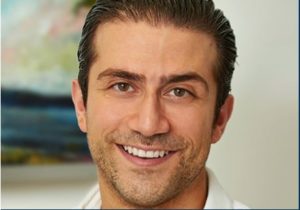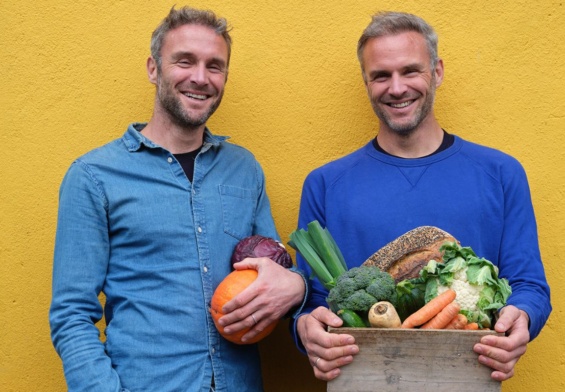By Dr Hossein Amini of Bryer Wallace Dental practice at 53 Sloane Street, part of Bupa Dental Care.
The run-up to Christmas can be an exciting time full of indulgence and treats, but too much of what you love can have a lasting impact on your teeth. However, with some forward planning and an understanding of which treats to minimise, the run-up to Christmas can still be enjoyable, without any unexpected oral health and hygiene problems in the New Year.
Minimise your intake of acidic beverages
Although we all enjoy a glass or two of fizz during the festive period, drinks like Prosecco and other sparkling wines and Champagne are high in acid and sugar content.
Drinks like Champagne and Prosecco can dissolve tooth enamel due to the high acidic level, which can increase the risk of tooth erosion. Fizzy drinks like cola and lemonade are also high in sugar and acidity. My advice would be to limit your intake of the festive fizz or choose a low-carb beer, as these beverages have the highest water content and lowest acidity, so are kinder on your teeth.
Top Tip – If you are planning to stick with the fizz this Christmas, drink a glass of water in between the Prosecco and Champagne. The water will wash away the sugar and acid from in or around your mouth.
Cut down on Christmas cake and mince pies
Mince Pie Moderation
You may have started stocking up on mince pies in November, but the high sugar content and dried fruit are not the best option for your teeth. People can assume that fruit in all its forms is good for you, but when it comes to your teeth, this isn’t necessarily the case. Dried fruit, in particular, has a high sugar content, and the consistency means that they can often stick to and become lodged in your teeth. This puts people at risk of getting cavities if they consume too many slices of Christmas cake and mince pies.
Top Tip – Eat sugary treats with a high fruit content in moderation and in one sitting. This is because if you are going to have sugary food and drink, the best time to consume it is with or immediately after a meal. Then eat it all up and don’t sit sucking sweets for long periods. Also, ensure you clean your teeth regularly to reduce the risk of cavities further down the line.
Mix up your mixers
Following a festive get-together, a popular pre and post-dinner drink is often a spirit with a mixer, but juice, cola, lemonade, or a diet mixer can be harmful and cause erosion to the teeth.
Hossein added: “Many of us enjoy a pre-dinner aperitif, but rather than selecting a whisky and coke, if you switch your paring to a vodka and a light tonic, for example, you will be making a better choice for your teeth.”
Top Tip – If you can, select sparkling water as a mixer, or as your drink, for the kindest option for your teeth.
Cheese or nuts?
In moderation, the good news is both cheese and nuts can be great choices for good oral health.
Cheese has a number of benefits for your teeth, including high levels of phosphate and calcium, which naturally strengthen teeth and bones. In addition, cheese helps balance the pH level in your mouth, which means less harmful acid, more cleansing saliva, and as a consequence, fewer cavities.
Nuts are also a good choice if you are looking for a healthy snack during the run-up to Christmas. They are full of healthy fats and are great for cleaning and strengthening your teeth; nuts can help us produce saliva to clean our teeth and regulate the pH of the mouth.
Top Tip – Choose an unsalted nut to nibble on, like almonds. These are crammed full of calcium, just the mineral that you need, to maintain strong teeth.
Are sugary treats to be avoided?
Nobody wants to be a Scrooge at Christmas and tell you to avoid all sugary treats, but better choices can help you maintain good oral health.
Choosing chocolate over sweets is a wise choice. Sweets, particularly the gummy variety, are almost entirely made up of sugar, and their consistency means that they can stick to your teeth, putting you at risk of cavities. Dark chocolate is the perfect choice for a treat. It has less sugar than white or milk chocolate, and the consistency means that it will not lodge in your teeth and cause potential issues with your oral health in the future.
Top Tip – To protect your teeth from harmful acids and sugar, rinse your mouth out with alcohol-free fluoride mouthwash between meals.

What treatments do people choose during the run-up to Christmas?
We want to look our best for the festive period, and this Christmas, for many, is even more special, as many of us were unable to share last Christmas with loved ones due to the pandemic.
During the pandemic, we have been staring at our faces during Zoom calls, and this so-called ‘Zoom effect’, added to the desire to look our best for Christmas, has meant that we have seen an upturn in cosmetics and facial aesthetics appointments. From people having clear aligners, such as Invisalign, to whitening, anti-wrinkle and filler treatments.
Not many people know that dentists can offer facial aesthetics treatment. However, there are many benefits in doing so – from being in a clinical, regulated environment to receiving tailored support and advice from a medical professional throughout the entire process, keeping safety at the forefront during every step of the way.
Top Tip – You can expect to see the full effects of teeth whitening within two to three weeks and anti-wrinkle treatments during the same period, so it would be advisable to book in before Christmas to look your best for the festive season.
During the run-up to Christmas, many temptations can be damaging to your oral health. However, in moderation and with good oral hygiene, you can enjoy the festive period without the worry of too many visits to the dentist in the New Year!
About the expert
 Dr Hossein Amini has worked in private dentistry for many years. He has a keen interest in cosmetic dentistry and complex restorations.
Dr Hossein Amini has worked in private dentistry for many years. He has a keen interest in cosmetic dentistry and complex restorations.
Hossein qualified from the University of Leeds, and subsequently completed his training year with the London Deanery, University of London.
He undertook postgraduate training in Restorative Dentistry at numerous institutes, including the Royal College of Surgeons of England. He’s currently carrying out an MSc in Implant Dentistry with the ICE Postgraduate Dental institute.
Hossein has also studied on the diploma courses at the Barts and the London Medical School, Queen Mary University of London for Forensic Medicine, and Forensic ID.
Having a keen interest in cosmetic dentistry and complex restorations, Hossein spent a great deal of time outside the surgery. He worked with experienced laboratory technicians to select the finest grade porcelains, alloys and materials to produce beautiful, long lasting and predictable restorations. Hossein also maintains a minimally invasive approach when it comes to restoring his patients’ smiles.


